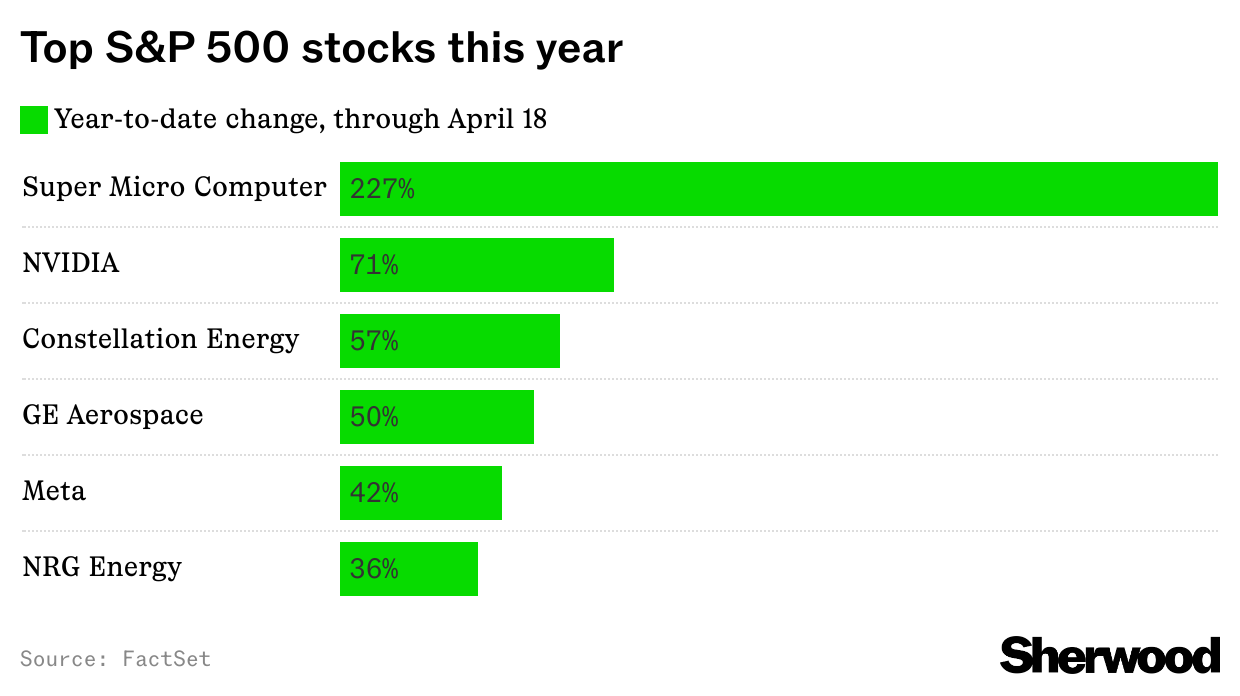Friday Jan.24, 2020
Google's ads go "camouflaged" 😎
_When you click on a funny cat video, but it's actually a Saudi hack_
Hey Snackers,
The restorers of a 15th century masterpiece may have spent a little too much time scrolling Instagram. This Holy Lamb looks like it's had some serious work done.
Markets kept put Thursday as world leaders wrapped up their rendez-vous in Davos.
Hack
Amazon CEO Jeff Bezos' phone was allegedly hacked by Saudi Arabia
Earth's richest man and the Saudi Crown Prince... walk into a WhatsApp chat. The personal phone of Amazon CEO Jeff Bezos was allegedly hacked by Saudi Crown Prince Mohammed bin Salman (MBS). Not a headline you see every day. Let's rewind:
- April 2018: Bezos and MBS exchange numbers at a dinner party in LA.
- May 2018: MBS sends Bezos a Saudi tourism video over WhatsApp (stars are just like us).
- January 2020: Except... not really. UN forensic analysis indicates Bezos' entire phone was likely hacked from the video (data flowing out of his phone surged by 30,000% after the vid).
Why so hacky?... Jeff Bezos has owned the Washington Post since 2013. Jamal Khashoggi was a WaPo reporter — and Saudi dissident — who MBS reportedly hated. In October 2018, Khashoggi was killed and dismembered at the Saudi embassy in Istanbul. The hack could've been an attempt to obtain embarrassing Bezos material for blackmailing purposes — using the leverage to influence the WaPo's reporting on Saudi Arabia.
When you dip your feet in politics... the politics rain down on you. Bezos' business is tech. But owning a news outlet also makes politics his business, dragging him into geopolitical disputes that aren't related to his main biz (and that are possible risks for Amazon shareholders). Now, Saudi media is attacking Amazon (#boycottamazonproducts was trending there), and US/Saudi tensions over Khashoggi's murder are resurfacing.
Search
Google's big new move — We're calling it "Camouflaged Ads"
If you thought your ads had disappeared... look again. Google just made ads harder to distinguish from organic search results. These "camouflaged ads" subtly launched last week, blurring the line between what you were actually looking for, and what companies are paying to show you.
- Before last week: It was easier to recognize (and gloss over) ads — a squared-off green "Ad" label next to promoted links at the top of a Google search page.
- Now: Meet, "favicons." They're like little logos that Google now sticks next to search results. Ads now look exactly like organic search results, except with the black word "Ad" where the favicon should be.
- The Problem: No more bright colors or boxing off. Less intuitive, more misleading. It's an ad that's trying to fly under the radar (like when you wave back at someone who wasn't waving at you).
Slow burn... Over the years, Google has slowly but surely made its ads harder to spot. After all, Google is an ads biz — 85% of its $40B in revenue last quarter came from ad sales. Here's Google's visual ad evolution:
- Up until 2007: Ads were obvious on the page, stuck against a blue background.
- 2008-2010: Google experimented with other, lighter colors (remember violet?).
- 2011: That ad space background was changed to less-bold yellow.
- 2013: Then it became a paler yellow.
- 2016: No more yellow background — just a small green "ad" label (until now).
Another pros before cos scenario... That's "profits before customers." Users are less likely to avoid clicking on paid ad results if they can't tell it's an ad. Advertisers get more clicks, Google gets more $$$, and users get less clarity on valuable/desirable search results. Google's motto used to be "don't be evil" (now it's "do the right thing"). Making money from hard-to-spot ads isn't evil, but it's way less transparent.
What else we’re Snackin’
- SOS: Match Group, parent of Tinder, said it'll roll out new safety features for its match-making apps (including an emergency button for dates-gone-wrong)
- Pea-not: Planters decides to kill off its monocle-wearing mascot, Mr. Peanut, after a 104-year run
- Throwback: VF Corp stock dropped 10% as sales of its Timberland and Vans brands started to slow
- WeOut: WeWork has sold its software company Teem and its minority stake in women-focused coworking startup The Wing because it really needs cash fast
- Lock Down: China has quarantined Wuhan and 5 other cities — a total of 20M people — in an effort to contain the deadly coronavirus outbreak
Friday
Earnings from American Express and Ericson
Disclosure: Authors of this Snacks own shares of Alphabet and Amazon
ID: 1068601
.png)

